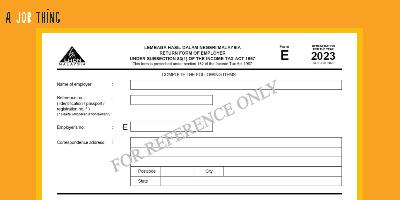
Why Your Company Must Have a Healthy Meeting Culture
Create Job Description Using AI
Write appealing job descriptions for any job opening to attract the most qualifield and suitable candidates. FOR FREE.
try now
Every week, the average employee spends at least three hours in meetings. Almost a third of employees say that they spend over five hours per week in meetings.
Since the beginning of the COVID-19 pandemic, the word "meeting" has come to be seen as a time-waster. Many think meetings add little to the company and saps productivity. In truth, they do provide real benefits. It all relies on how they're implemented in the workplace.
Meeting culture reveals a lot about an organisation's management and practices. It reflects on how people interact and relate to one another and the wider communication style among coworkers and management.
Meeting culture reveals a lot about your company culture
The way an organisation conducts its meetings can reveal a great deal about its overall culture. It provides information about the company's values, decision-making abilities and processes, teamwork, and communication.
Almost everyone will attend (or lead) a meeting at least once in their lives, regardless of their employment status, rank, or role. It could be a large one or a personal meeting. However, what is important is to understand the tone of the meeting as it affects the bigger picture.
-
Does your organisation use meetings to resolve issues?
-
Does the upper management value all viewpoints?
-
Do your coworkers use meetings for brainstorming?
-
Are participants allowed to depart once the important issues have been addressed?
If your answer is "yes" to all these questions, congratulations! It's a sign of a healthy meeting culture.
What are the signs of an unhealthy meeting culture?
Ask yourself these questions:
-
Does the company appear to hold meetings with no clear plan?
-
Is it just managers who are encouraged to talk in meetings?
-
Is "meeting" the solution to all problems?
-
Do these meetings go on forever with no end in sight?
If you can say "yes", then your organisation's meeting culture needs improvement.
4 ways to improve meeting culture
1. Set and maintain a meeting agenda
It turns out that smart planning is only half the battle when it comes to better meetings.
The simplest method to avoid ineffective meetings is to prepare a detailed meeting agenda ahead of time and ensure everyone follows it. This ensures that no one wanders off-topic and that every meeting is focused on accomplishing real work.
Set out clear guidelines as well as notes for each agenda item. This will make the meeting's objectives and overall agenda clearer to the attendees.
2. Seriously consider who should be in the meeting
You will slow meetings down when you have irrelevant attendees in your meetings.
If the meeting includes all the team members and a few members from a different department whom you have never met before, your overall teamwork capabilities will likely suffer.
And if you forget to invite someone necessary to the meeting, the meeting will not progress as it should.
3. Assign attendees their roles in the meeting
This is very helpful when choosing your attendees. Every meeting needs attendees to play specific roles for it to be productive. For instance, you cannot run an effective meeting without meeting leaders. They keep track of most of the administration work for the meeting.
A meeting should also have a facilitator, as they ensure that only one person will speak at a time. If the meeting includes a PowerPoint presentation, the facilitator can also be the one responsible for switching slides as needed.
4. Adjust your meetings accordingly
One should not treat virtual meetings the same way they would treat in-person meetings.
When it comes to other types of meetings, the same idea applies. For instance, a casual check-in requires a different style than a large-scale meeting with multiple teams.
You'd also prepare differently for a meeting with senior managers than you would for a meeting with interns.
Each type of meeting should follow a specialised template. This ensures that meetings are used to their maximum potential and that every meeting is appropriately tailored to its type.
The better your meetings are planned, the better they will go.
The objective is to make sure that everybody understands their position as well as the meeting's action items. You'll avoid individuals veering off-topic or missing a key meeting point this way.
It's also critical to set aside time to prepare for any upcoming meetings. Make sure your meetings build on past ones and set the stage for future meetings.
When you plan meetings well, you will have a healthy meeting culture in no time.





